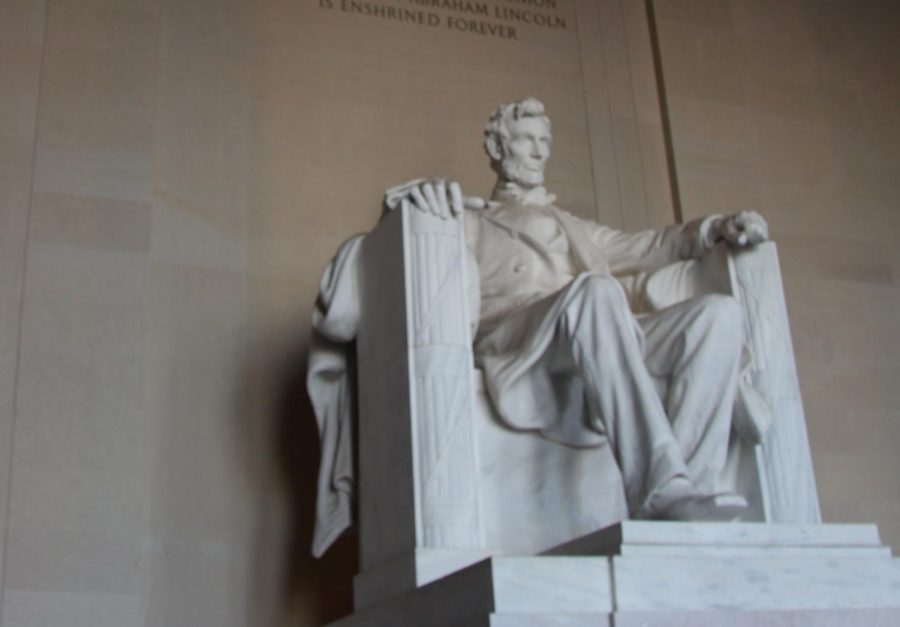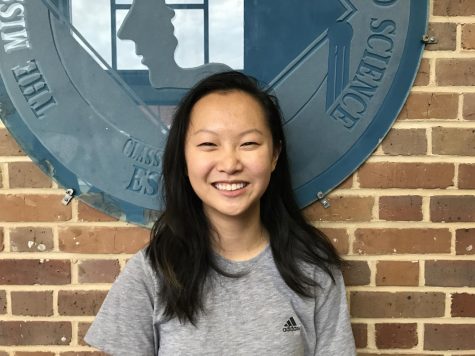Peng: Equality from a Model Minority
McCain’s legacy is one that United States will forever remember as a brave veteran, strong citizen, and man that always put his country first.
December 11, 2017
The summer before my sophomore year, I clearly remember driving through the National Mall admiring the picturesque rolling green lawns and roman architecture of our capitol’s landscape. I had been to Washington, D.C. a couple of times before, but some monuments and museums were fresh to my eyes, in particular, the National African American History museum. A deep copper geometric structure that stretches towards the sky, the African American History museums not only exemplifies an architectural masterpiece, but a national accomplishment as well.
While driving past this structure, my initial reaction was an overwhelming sense of national pride; after all, America has come far from the shackles of slavery and Jim Crow. Still, I couldn’t help but wonder where the Asian American Museum was. My parents had immigrated from China and built their lives up to support my sister and me like millions of other Asian Americans. Where was the museum that celebrated my culture and, daresay, “portion” of American diversity? Later that day, my curiosity drove me to look up the said museum. Somewhat thankfully, I discovered the “National Asian American and Pacific Islander” museum but found that it was under renovation while its website provided no future explanation or information.
I was frustrated to say the least. I felt under-represented and even that my culture was under-appreciated. Looking back, I know realize that Asian American history and culture is under-emphasized in the American political society. This fundamental issue is plainly reflected in public school education curriculum.
In public schools, there’s a huge emphasis on African American history. While MLK and Rosa Parks are taught in Pre-K, I’d only ever heard of the Asian Exclusion Act in the freshman year of high school. This not only shows a fundamental issue in the public school education system but also reflects U.S. society’s apparent ignorance of some ethnicities’ relevance in US history.
To clarify, I have nothing against the celebration of African American culture–by no means am I arguing that African American culture should not be celebrated to the extent that it is. Instead, I argue that American diversity in ALL spectrums should be celebrated. Yes, I am aware that the the National African American museum was built in celebration of Obama’s presidency. But why did this have to trigger such a celebration of culture? Why was it not there before? Is America really so petty that the celebration of diversity can only be triggered publicly in politics by a president of that race?
On the MDE Social Studies framework, published in 2011, for each grade, the depth of knowledge for each grade-level is bulleted. In the Civil and Human Rights section, African American history only shows up in the course curriculum in fourth grade, to “Identify historical figures (e.g., Fannie Lou Hamer, Medgar Evers, and Martin Luther King Jr., etc.), circumstances (e.g., slavery, abolition, segregation and integration, etc.), and conditions (e.g., The Great Migration, Trail of Tears, Women‘s Suffrage, etc.) …”
Furthermore, from 4th to 12 grade, only African American history and women’s suffrage movements are emphasized in the Civil rights curriculum. Asian and other ethnic minorities only appear in 11th grade US History. And even then, no key figures or movements are required in U.S. history state curriculum only a citation and analyzation of “the political, economic, and social changes in the United States that expanded democracy for other minority and immigrant groups.” History is about learning about our past to build a future but how is that possible if I, as an Asian American high schooler, know so little about my own history in the nation that glorifies diversity?
Maybe Asian equality issues did not result in such a large movement as the African American Civil Rights movement, but that is no excuse for our history to not be covered in schools. U.S. society must realize that America’s diversity and social issues aren’t black and white. Undoubtedly are these issues integral to U.S. society, but they are NOT the only issues that should be discussed and highlighted. As a girl in the minority who attended public school for all of her life, I can safely say that in history classes and U.S. history classes, I wonder if I fit into the spectrum of diversity in America due to the of the lack of acknowledgement of other races beside black and white.
Maybe this plea or a celebration of diversity is too much to ask for in today’s society of Islamophobia, anti-immigration, and nativism, but the celebration of ALL ethnicities and diversity as a whole is essential for the integration and peace of America in the future.









